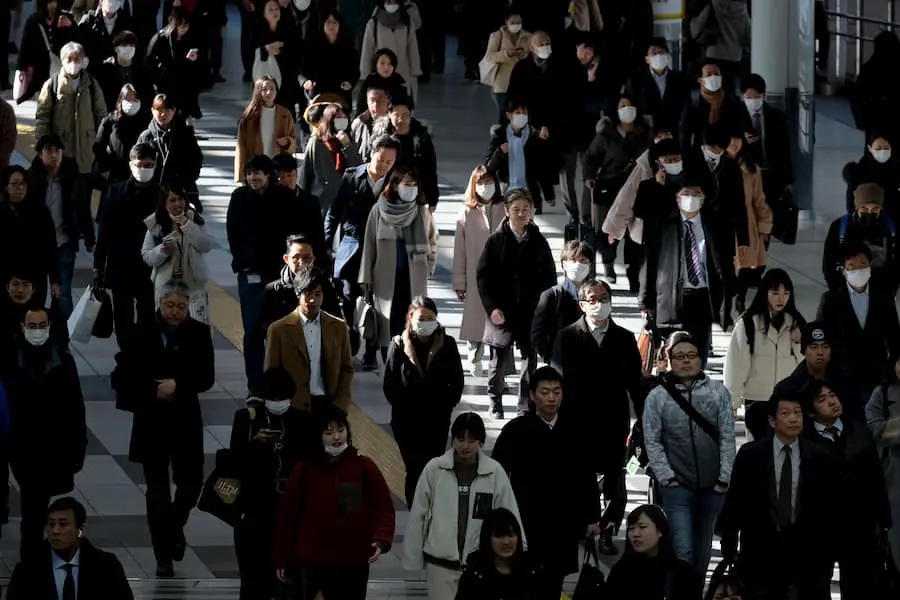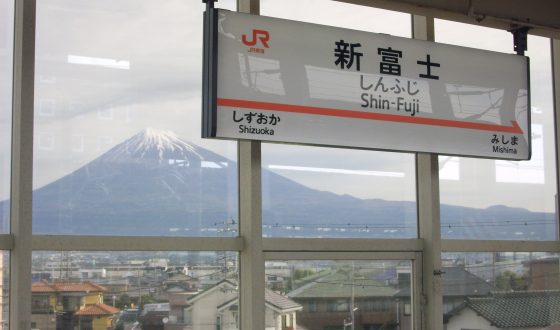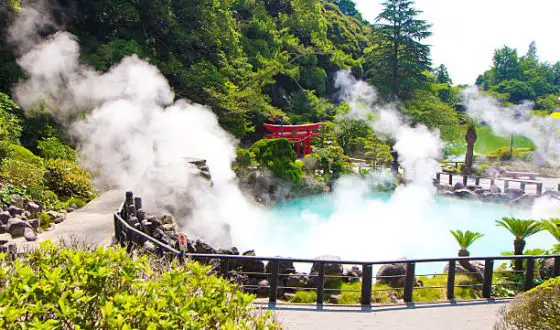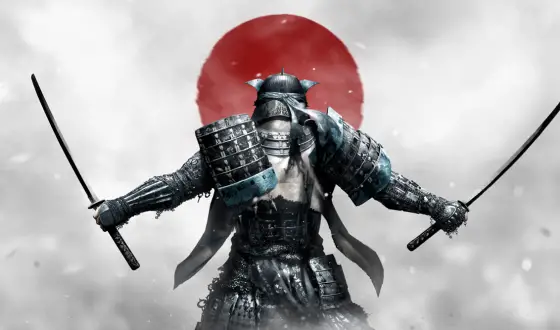Japan Working Culture – The Old Vs The New
Japan is famous for its unique food and art culture, but of course, Japan working culture is also distinct. If you intend to work in Japan in the future, or you are simply curious “What is it like working in Japan?”, this location guide is for you both. We will investigate some traditional incorporate key customs in Japan like nomaiki, Nenkou-joretsu along the new shifts in Japan working culture.
Long-lasting Japan working culture
1. Formal and polite workplace
Unlike America where the workplace seems more casual, the office in Japan is very formal indeed. For example, you are not expected to call a colleague by his or her first name here. Or let’s talk about the uniforms or dress codes at least. Trust me, just walk along the Shibuya, the business center of Tokyo, during busy hours, you will hardly find any commuter dressed in a bright color. Instead, people are required to wear gray or black as it is considered a sign of professionalism. Particularly, males wear suits and ties all year rounds including summer meanwhile salary women clothed in navy blazer outside of the white blouse and a skirt. Even their high heel shoes are black and they have their hair tied in a ponytail.

The dress code in Japan workplace is black, gray, or navy.
SEE MORE:
The good thing about this Japan working culture is that no one is ever rude to you. From the boss or colleagues to the clients, Japanese people, in general, would rather and always attempt to be pleasant and gentle.
2. Senior power
Nenkou-joretsu principle, which depicts the hierarchy of a senior and a junior, is strictly followed by Japanese whether at school or at work. To be specific, a junior must pay a great deal of respect to the senior. So, in many Japanese corporations, the salary and promotion are based on seniority which is the working years in the company. Most of the time, newcomers will receive the same basic wage and wait for the exact time span to get promoted no matter their competencies or contributions. That is the reason why people are afraid of quitting their current jobs and start all over again … from the bottom. However, we are witnessing a shift to a merit-based system in some corporations, which we will look at more closely in the latter part of this article.

The senior-junior relationship is a fundamental system of Japanese society.
3. Work in a group, rather than individually
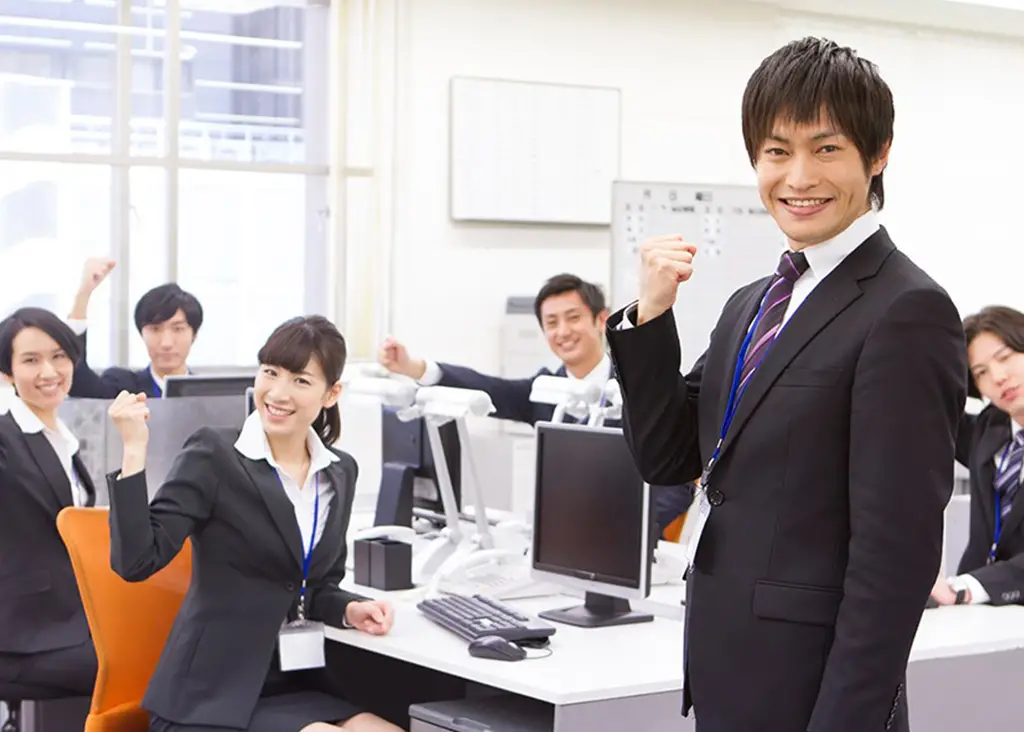
Japanese emphasize the importance of teamwork.
While western companies value individual ego and independent work, the Japanese look for the effectivity of teamwork. Everything needed to be done need a group to work on. The manager, himself focuses on group harmony rather than a personal wish or point of view. Therefore, he usually works as a guide, a mentor, and most importantly a connector. Your colleagues also naturally love to corporate and are supportive. Under any circumstance, Japanese companies will choose to preserve this harmony and a sense of belonging within the organization. Even people themselves are normally less concerned about their own career path but the success of the team they are working in.
4. Drink with co-workers after work
In many countries, corporate culture, the relationship of colleagues end after working hours. But not in Japan! As I said, we work in a team a lot and we do that really well. A reason is that the Japanese do make effort to socialize with co-workers. It is not compulsory but they usually hang out for dinner, at karaoke, or a drinking party called nomikai. Nomikai is also referred to as communication, nomu means drinking and the rest comes from the English word communication.

Drinks after work with colleagues is a form of traditional social etiquette in Japan.
Nomikai can not only strengthen the bond among employees (and even their bosses) but it also is a way to release stress. So these late-night gather can last until one passes out. Sometimes, employees may make use of this opportunity to become closer with their employers and attempt to climb the corporate ladder.
5. Work long hours and few breaks
I believe you expect to read this before you click on this article. It’s true that Japanese work long hours more often than most other developed countries (on average, in some companies, people are required not to work overtime anymore). Indeed, Japan has suffered from legally recognized issues named karoshi, which is death by working too much. And from the research of the Ministry of Health, Labour and Welfare, in 25% of Japanese companies, full-time staffs usually work 80 extra hours per month. 12% of these people can even log over 100-hour working. In fact, overtime working is normally unpaid. Not only working after hours, Japanese salarymen only take 50% of their paid leaves (excluding national holidays). Some say that it is because they feel guilty about taking time off while their colleagues are still working. Is it just simple like that? I believe there are inner reasons.
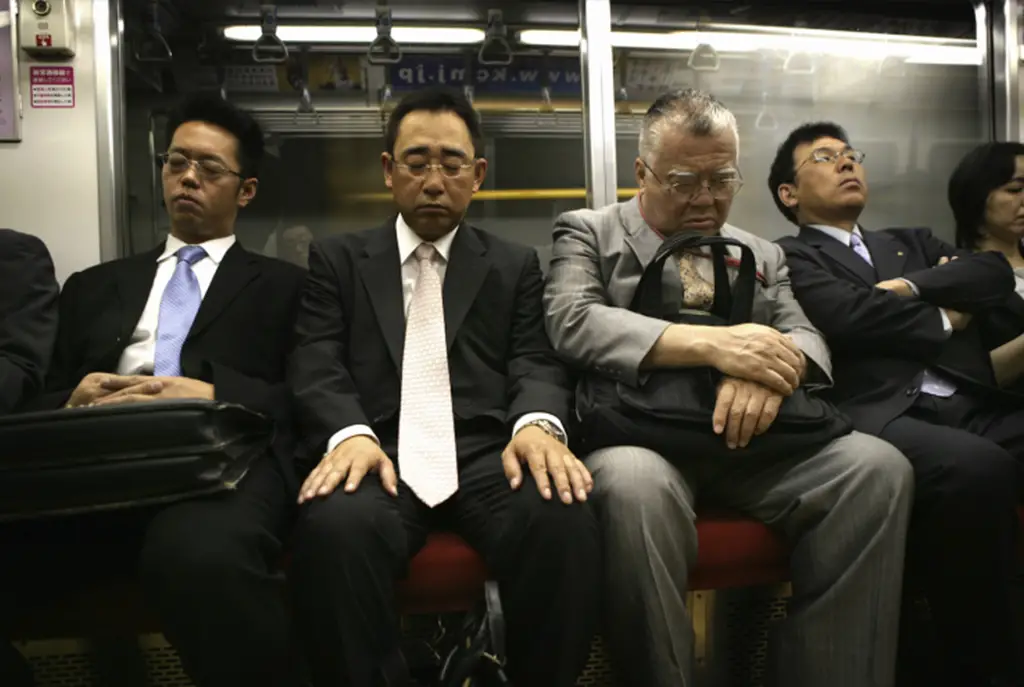
Working up to 15 hours a day exhausts the salarymen.
The reason
First, you must know that the Japanese work market is notorious to give only “one chance in a life”. You graduated from university, get a job, and cling with it. If you get dismissed, it is such dishonor and you will be referred to as a failure. There is barely a second chance. So the fear of losing their jobs in Japan is very high, which makes Japanese employees do anything they can to please the bosses including taking a huge amount of extra work with no compensation.
Sometimes, even when you have no extra task, you should still pretend because you can’t leave earlier than others. Therefore, the OT time may be long but not always necessarily intensive, maybe the staff just try to show off commitment rather than to make anything done. It is called “signaling”. Besides, you should refuse your breaks. Since everyone does that in Japan, it is a norm. It may be weird but by asking for a week paid holiday, your boss will think that you are not into working any more…
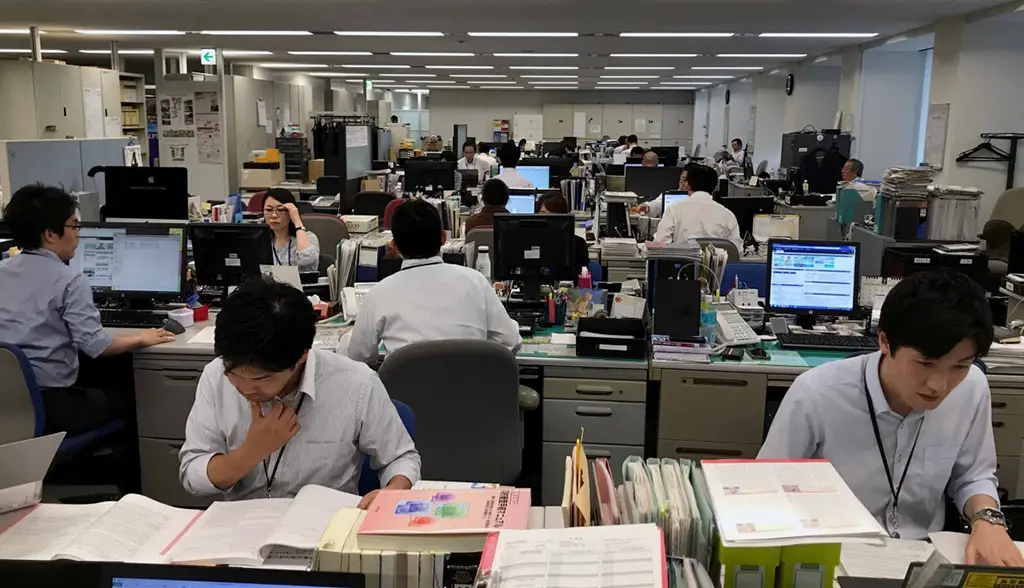
It is not always working long hours but sometimes being there for long hours. Because they don’t want to be considered lazy if going home on time.
Obviously, it’s not just the fault of the hiring system and the economy, but Japanese salarymen have significantly attached their identities to their jobs in a firm. Being out of theỉ work many may feel they have nothing. And they are under a lot of pressure of being judged by their superiors and their colleagues. They are also afraid of changing a whole way of life they’ve been brought up with. Therefore, whether it is 10 or 14 hours working a day, they bear with it.
6. Indirect communication style:
Some of my foreign friends explain their little irritation that most of their co-workers seem to be unable to say “no” or express their opposite opinion in the straightway. Instead, the Japanese tend to notify you of the (negative) information least aggressively as possible. For example, your boss may give you indirect and fuzzy orders or comments which make you keep thinking about what they really mean.

Japanese communication style tends to be indirect and unclear.
It takes a long time for an ex-pat to be acquainted with this communication style. Especially you are from a country with contrast culture, where people prefer to speak their minds. But trust me, after a while, everyone can adapt and you will realize most subtle signals like a real Japanese.
7. Slow to decision
Japanese also have another system named Ho-ren-so which stands for Houkoku – renkaku – soudan (Report – Contact – Consult). This describes a decision-making process an employee have to go through. It is simple, the staff always inform his or her superiors about any task they are doing. Regardless of the importance of the decision, the decision-maker is the boss or the boss of the boss. There are a chain of command and various stages to get approval. Even during execution, any tinies issues should not be solved on your own but be reported to the supervisors first.
Besides, Japanese are particularly careful and detail-oriented. This means even planning is made with great caution and needs a bunch of people involved to discuss whether it really gonna work. This adds up to the long-drawn-out time to get anything done.
The evolving Japan working culture
1. Effort to reduce the working hours
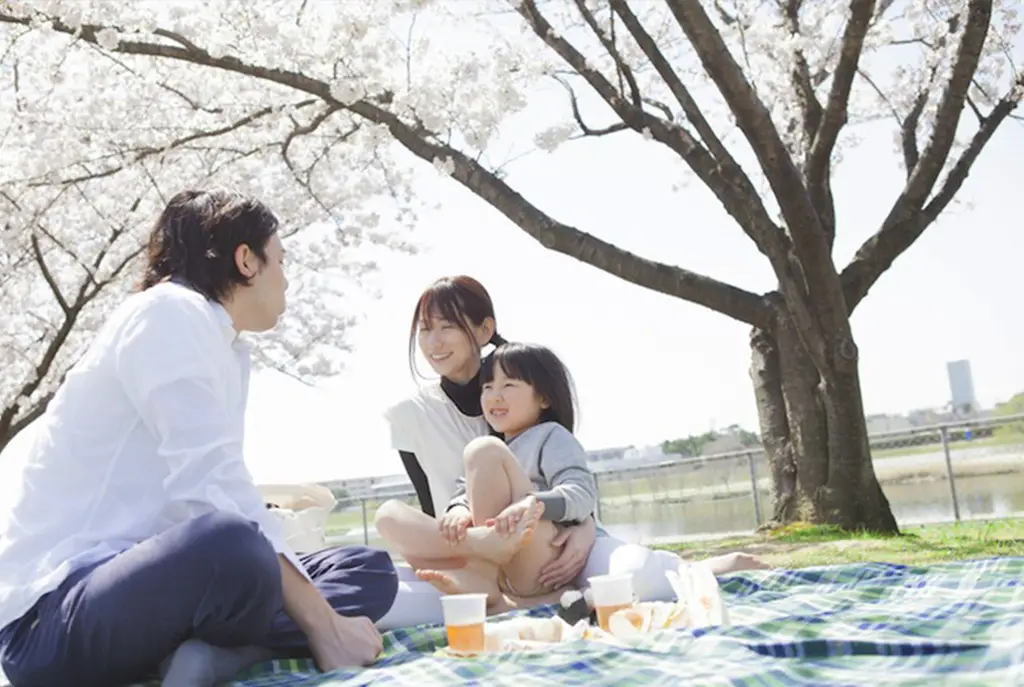
People are encouraged to take their time off for family and relaxation.
To solve the problem of overwork, Japanese authorities have a regulation that compels people to take a minimum of a 5-day break and make sure that high-paid employees in some fields, for instance, finance, get the salary equivalent to their performance, not the hours. Furthermore, the ins are cutting down the working hours along with enhancing the workplace conditions from building sports facilities to gyms.
Another factor contributing to the trend is the stable economy. People don’t need a “signaling” culture badly to cover up anymore.
2. Changing jobs and no more lifetime employment
In the past, Japanese companies tended to offer loyal employees a perk or a kind of job security called lifetime employment. However, decades following the bubble economy in the 1990s, this has almost disappeared. Only 8.8% of inc still maintained it, according to Diamond magazine. Even then, some of these companies are reported to assign a nonsense task to their older life time worker or send them to remote branches, which leads to their resignation.
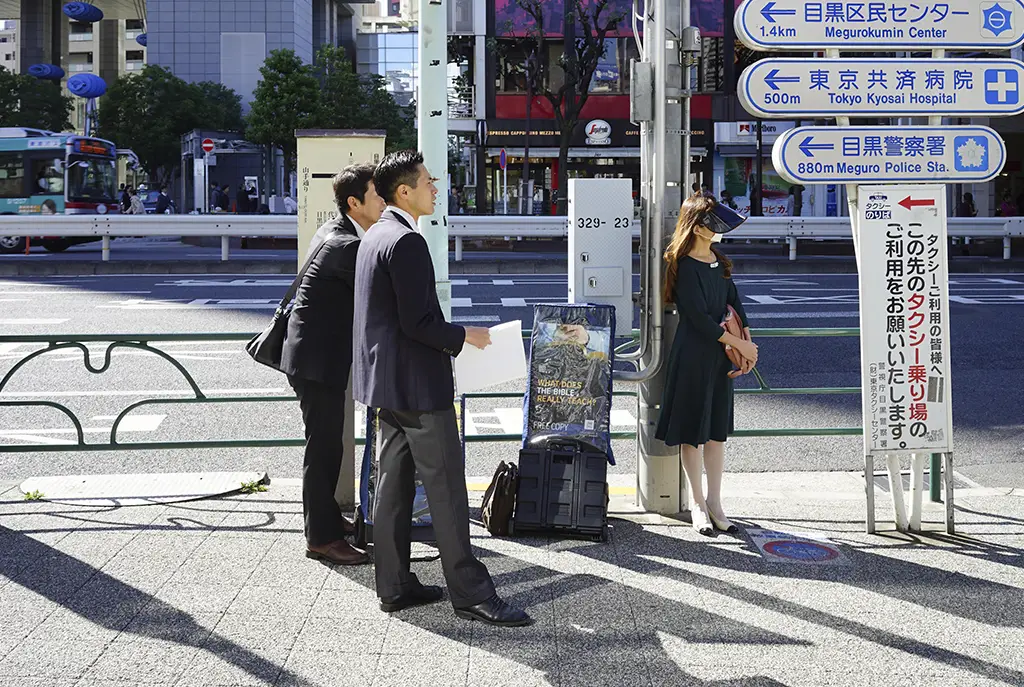
Young people feel more open to change their jobs nowadays. Because they can! Businesses accept them to be like that.
During the downfall of lifetime employment, changing jobs turn to be more common. It is no longer considered as shame or unloyalty. So people, especially the young, feel less tied to a particular workplace like they owe it something but more actively look for a better destination. These people are gradually welcomed by businesses and society. However, the middle age workforce returning back to the job market does not have such an easy road. They face way more challenges and fewer opportunities. It is hard to find a job matching their experience because these positions are already taken. And they can’t start over again in a different industry. So many of them stay unemployed but try to hide this from their families. They leave and come back home like usual every day as if they are still working.
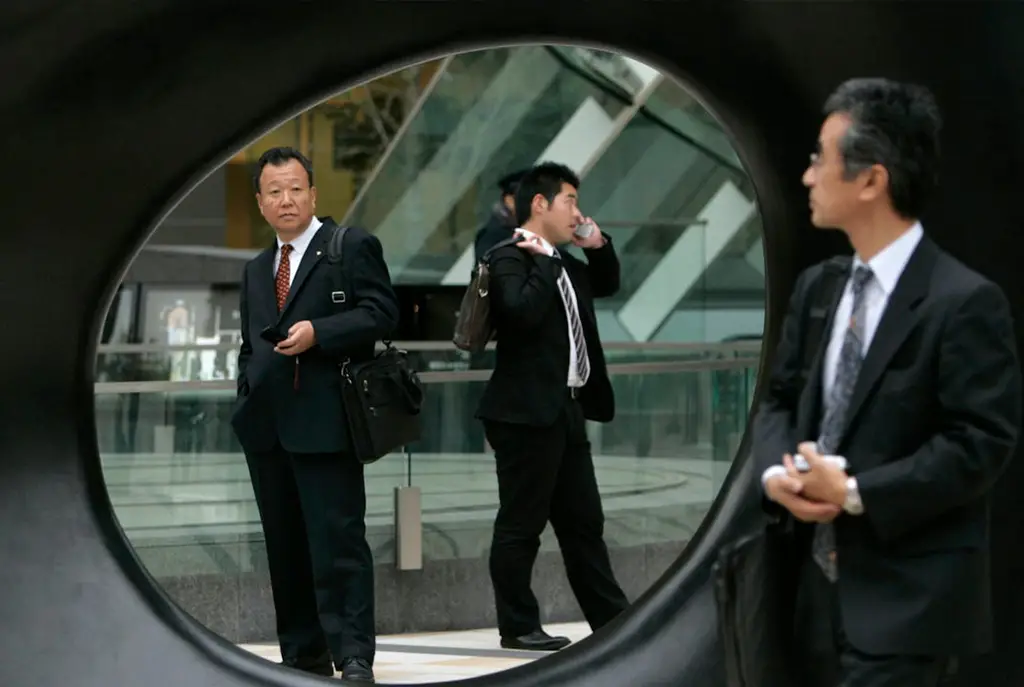
The negative side of this is no more job security for the older worker who would face enormous challenges if returning to the job market.
3. Hiring systems
Japan’s hiring system has always known as conservative, in which graduates get the best job opportunities when they are about to graduate. Those who are successful will get a stable job and keep advancing, and receive a steady salary increase. On the contrary, those who fail will forever be stuck in low-paying jobs, have no chance of a promotion, and face uncertain lives.
However, in recent years, the birth rate and working-age population decreasing have led to a greater demand for workers more than ever before. So the companies now have to compete for a short supply of qualified candidates. This brings the hiring system to a gradual transformation. Another change is the increasing quantity of headhunt firms. Moreover, you don’t need to get to the firm right from the university of unrelated majors and learn on the job. It is less competitive and intensive to get a job as the unemployment rate is low.

The job market has been a little less competitive.
On the other hand, the companies are cautious towards a recession in the future so they choose to hire contract workers, who occupy 34% of the Japanese workforce.
4. Women in the office
For a long time, there is not a position for women in the workplace. They are supposed to stay at home after marriage, do housework, and take care of their children. If they avoid that choice, they are likely to end up being single, staying with parents, working low-paid jobs, and spend money on clothes. I can say this has completely changed, not even close. But it has been a little better.

Women in Japan are standing strong against prejudice and the difficulties in the workplace.
There is definitely more presence of females in the offices nowadays. Not only gender equality has been paid attention to, but it’s also a mere lack of employees which helps to change the mindset. However, their salaries are usually lower, up to 30% compared to male co-workers in the same position. And if they get married, their husbands and society probably put pressure on them to quit jobs. So there are still a lot of fights for women right in the workplace.
FAQS
+ What is Japanese work culture?
That is all we talking about today. From long working hours to the indirect communication style, formal workplace to teamwork spirit, slow decision-making process to some norms like nomikai, drinking with colleagues.
+ How many hours do Japanese work?
In the paper, Japanese Labor Law limits working hours per week to 40 (8 hours/ day). Provided that Japanese companies want to increase that, they must ask for permission from authorities. However, in reality, it is so hard to monitor that, let alone most employees feeling voluntarily obliged to work overtime. So they barely make any complaint. A survey in 2016 by the Japanese government indicates that one-quarter of Japanese companies require their staff to work 80 extra hours in a month. Besides, according to OECD (Organization for Economic Cooperation and Development), the percentage of Japanese working more than 50 hours per week outnumber that of the US, 25%, and 11% respectively.
+ Is working in Japan stressful?
In some aspects, I believe that answer is yes. Some of the reasons may be long hours working, compulsory business trips, and less freedom. It also depends on each company and the employee’s beliefs. If you are a woman with kids, even nomakai, drinking, and socializing with co-workers after work, which seems fun, can be a meaningless waste of time. Furthermore, Japanese has witnessed many suicides of overworked people, called Karoshi. So work-related stress is definitely an issue in Japan.
+ Why do Japanese work so hard?
I have provided you with some insights regarding this phenonmenon above. For more perspectives, check out this video:

